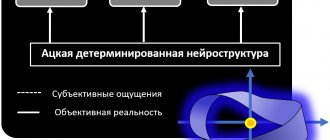Freedom and the concept of “freedom” is an eternal question, relevant at all times. Freedom is a very controversial aspect of life, causing a lot of judgment and controversy, because the realities of life are such that the concept of “freedom” is different for everyone.
At the same time, personal freedom is a multifaceted concept. Freedom is expressed in the economic aspect, in freedom of action. There are other types of freedoms - political, spiritual freedom and others.
Thinkers and philosophers have tried to understand freedom, giving the concept different interpretations.
T. Hobbes believed that the meaning of freedom is that a free person has no obstacles to action. I. Bentham believed that laws destroy freedom. Existentialists argued that man is free from birth. N. Berdyaev - that a person is initially in freedom and it is impossible to remove it. J.P. Satre saw the meaning of freedom in the preservation of human essence.
Freedom or responsibility
Another aspect of personal freedom is necessity and opportunity. A person is not free to choose conditions, but at the same time a person is free to choose a goal and means for its implementation.
Freedom is an attribute of personal development, but if a person does not have responsibility for freedom of choice, this is called arbitrariness.
A person lives in a society, his freedom is compared with the freedoms of other citizens, which means it characterizes a specific individual. Between the concepts of “freedom” and the concept of “responsibility” we can safely put an equal sign. The freer a person feels in society, the higher his responsibility for using it in society.
Basic theory
The philological definition of freedom says that its origins go back to Sanskrit roots, which in translation sounds like “beloved”. They talk about freedom in the following way: if a person is independently able to choose, think, and act at his own discretion, he is free.
To understand freedom, one should become familiar with two types of this definition - voluntarism and fatalism.
The origins of voluntaristic freedom say that a person is free from necessity, from duty. Fatalism defines freedom as tribute. A person does not change anything, but accepts everything as a tribute.
Fatalism determines that freedom is involuntary and not allowed to everyone, because human actions are limited by boundaries - natural, cultural, socio-historical, political, the level of development of the individual or the country in which he was born. It is limited by the objective laws of the development of nature and society, laws that man cannot cancel.
Other definitions - the legal concept of freedom is that a person is at the legislative level with clear justifications for action. This includes freedom of speech, etc. The legal concept of freedom is interpreted as human actions that do not cause harm to others when a person obeys the law and established rules.
The economic aspect of freedom defines it as engaging in any type of activity, taking responsibility and risk for one’s choice, for one’s activities.
Terms of sale
To realize desires and show will, certain conditions must exist:
- Social norms - the action must be legal in accordance with the legislation adopted in a particular period of time. We analyze whether the action will be appropriate in accordance with customs and traditions. A few centuries ago, wearing a short skirt or short shorts was unacceptable, but now you will get strange looks if you go out in a dress from the 15th century.
- Place in society is an important factor. In the Middle Ages, a serf peasant could not afford the same things as a master. Now it seems there is no place for this, but this is a mistaken opinion. People of the lower class with small salaries do not allow themselves to do what people of the upper class do, even if they want to.
- Forms of social activity - how your action is perceived depends on what form of activity it is. If you plant flowers in a flowerbed in a private house, and in the fall you cut them and put them in a vase, then everything is in order. But if you cut flowers from city flower beds, you may be fined.
- The level of development of society - people of the Middle Ages did not even have the desire to wear something like what we wear. Just like we have no desire to walk down the street in outdated clothes.
- An individual’s mastery of cultural norms and values of society—the level of culture that a person has mastered determines his will. Children who grew up in dysfunctional families with parents who are alcoholics and drug addicts show the same tendencies in adulthood.
Given favorable conditions, a person will express his will and will not face public condemnation or punishment by law.
Freedom is a relative concept and a key problem in philosophy for many centuries. Its understanding differs not only for each person, but also for the entire society, depending on the historical era in which it exists.
Is there such a thing as unconditional freedom?
From birth a person is free and this right is inalienable from him. A person grows, develops, comes into contact with the environment and society. The internal feeling of freedom gradually fades away and becomes dependent on circumstances and other factors.
Unfortunately or fortunately for the person himself, there is no absolute freedom. Because, even living as a hermit, a person is forced to take care of shelter, food and clothing. Those who live in civilization all the more obey the norms adopted by the laws.
How to become a free person?
Personal freedom begins with oneself. It is not necessary to free yourself from your loved ones, things, the course of events and other life objects; on the contrary: you need to clearly understand that freedom comes, as it were, from within a person. It is important to give internal guidance.
Internal liberation begins with the removal of restrictions, which is provided by the mind and subconscious. The most important criterion for removing restrictions is the rationality of actions. Liberation from one's own instincts and reflexes allows a person to control them and take power over them. Moreover, by controlling his own reflexes and instincts, a person receives “bonuses” - control and correctness of his own behavior in society, prevention of ambiguous actions. A free person knows no regime. She is sensitive to her body and listens to it. There is no need to adhere to a sleep and nutrition schedule, rest and other things. There is freedom of secondary reflexes, as well as their control. By occupying such a position, the individual receives more energy from food, his rest becomes better, and his productivity becomes much better. It is important for an individual to be free from complexes, especially inferiority complexes. After all, in fact, this is the main freedom, which many people spend a lot of time acquiring. An inferiority complex is energy-consuming; it “devours” an individual from the inside. An inferiority complex is born from negative experiences that a person hides within himself.
Personal freedom is defined in getting rid of the power of emotions. True freedom is when a person acts not under the influence of his own emotions. After all, falling under their influence, a person acts unconsciously, sometimes badly, often regretting what happened as a consequence. After which another complex is certainly generated. In the case of freedom from emotions, it is important not to overdo it. Feelings in themselves are beautiful; the irrational principle pushes a person to create. But if emotions take the reins over reason, then danger arises for the person himself and his environment. Controlling your own emotions is not easy, but it is necessary, systematically and slowly. To begin with, as in the case of complexes, it is important to identify the problem and accept it. To better understand the nature of your emotions, you need to step back from the problem and look at yourself from the outside, as if from the outside. Then the observer will be able to see his actions, as well as the excessive manifestation of feelings as a spectator. They can be reasoned logically, an explanation and assessment of one’s own actions can be given. At some point, your own actions will become ridiculous and funny. Another freedom is freedom from the logical paradox of being an adult without killing the child within you. After all, in essence, children are not limited, their minds are not littered, they have no prejudices.
FREEDOM IS THE LEADING CHARACTERISTIC OF HUMAN EXISTENCE
The active attitude pulls a person out of subordination to the forces of nature and contrasts him with the laws of the natural world. This is why we can talk about human freedom. What does it mean to be free? What kind of freedom is possible for a person? To do this, we need to give it a definition. In general, freedom is the ability to be the cause of your own actions.
Let's decipher this definition and thereby highlight the signs that allow us to establish which action is free and which is not. How to do it? For thinkers who discussed the topic of freedom, it was always contrasted with necessity. Comparing freedom and necessity will be our main method. Necessity can be understood as a set of conditions, circumstances, obstacles that force or compel a person to act in a certain way, namely against his will.
1. Then the first sign of the manifestation of freedom will be an action that overcomes an obstacle and achieves its goal. After all, if a person did not achieve his goal, then something was stopping him and thereby forcing him to act contrary to his own will or the assigned task.
2. But freedom is not just the ability to achieve a goal. A stone thrown with a well-aimed hand also has this property. But he is not the reason for its implementation. Therefore, to understand the specifics of free action, one must determine its causes. In other words, who sets the goal? Freedom is independence from the laws of nature or the will of other people. To act according to the laws of nature would be to act according to necessity or compulsion. To act freely means to be the cause of your goals. This is the second sign of free action.
3. But man himself is also not a simple creature. His will to act can be influenced by feelings or reason. A free action is an action the cause of which is one's own mind or a goal set by the mind. An act under the pressure of feelings, passions or inclinations is coercion. That's why we call it arbitrariness, whim, caprice. This is the third sign of free action.
Why do we consider acting under the pressure of feelings unfree? When a person acts under the influence of passions and emotions, then he is controlled by the outside world. and not himself. True, this does not happen directly, but indirectly, through certain objects that affect the senses. After all, feelings cannot say “no” to the temptations of the surrounding world. Only the mind can do this. Therefore, we can say that the conflict between freedom and necessity in a person manifests itself in the struggle of feelings and reason over which of them will become the cause of an action. But this does not mean that freedom consists in the suppression of feelings by reason. After all, otherwise it would not be desirable for a person. This means that the mind must guide and direct desires. Therefore, the laws of reason are the laws of freedom and vice versa, the laws of freedom are the laws of reason.
4. Another important feature of free action is responsibility. Freedom comes with responsibility. Moreover, responsibility does not come after a free action, but is an integral part of it. How to understand this? Free action involves setting a goal. What makes it special? It is about setting a goal within your capabilities and taking into account the circumstances of its implementation. If they are not taken into account,
_ they can interfere with the achievement of a result and thereby act as an expression of necessity. What is included in these circumstances? First of all, taking into account the consequences of achieving the goal. After all, if I achieve something, but I don’t like the consequences of my actions, it means that the goal has not actually been achieved. Thus, responsibility consists of understanding and accepting the consequences of certain actions.
It lies, first of all, in responsibility to oneself for the decision made. So, if you set a task, then achieve it, and if you set it, then do not regret what you did. But in this form, freedom is not necessarily associated with actions contrary to society. After all, if my actions can interfere with the interests of other people, then those around me can limit my freedom. Therefore, thanks to the principle of responsibility, freedom and life in society can not only not contradict, but even be consistent with each other.
5. The next sign of freedom is the ability to choose between different options for action. Strictly speaking, only by the presence of choice can one determine: I make a decision or, so to speak, circumstances make a decision for me. No different alternatives - no freedom. The choice must also have equality of opportunity: the choice between wealth - health and poverty - illness is not a true choice. Each of the alternatives facing a person must have both a negative and a positive side.
6. But very often the situation of choice presupposes the presence of external circumstances, predetermined for me, and not created by me. For example, when I choose from what other people have created before me and provided to me. I came to the store, there were ten coats and I didn’t like any of them. This means that, despite the apparent choice, there is a need to choose from what is given in advance. Therefore, the decisive criterion of freedom must be the act of creativity. Creativity is the ability to create a new, not yet existing alternative. Only creativity shows my independence from external conditions.
This is how we outlined the signs of free action. When does such freedom become an important factor in human existence? Anyone who strives to do everything his own way for every reason blurs the line between freedom and whim. Therefore, the need to express one’s freedom, and therefore to be truly free, can arise only when a person is not satisfied with existing circumstances, when the choice he must make is decisive in his life.
Now we see that freedom is very closely related to the specifics of human existence, i.e. with activity. One might even say that a person is doomed to freedom. But the attitude of the individual and society towards it may be different. The discovery of the very property of freedom was also the result of a long journey of human self-knowledge. In addition, the discovery of such a property does not yet mean a positive attitude towards it. A person may try to run away from freedom, forget about it, strive to suppress it. This attitude is also called “flight from freedom.” In traditional societies, with their fear of novelty and change, the attitude towards freedom was suspicious. And in the totalitarian regimes of the 20th century. it was directly suppressed as a manifestation of dissent.
Therefore, the possibility and necessity of being free depends on how much society itself needs a free person. A new perception of freedom arises in societies oriented towards an active transformative attitude towards the world. This is the era of the formation and flourishing of industrial societies. This is our modern era. Now a person is required to demonstrate independence and develop the ability to make decisions on his own. And as soon as freedom is recognized by society, it becomes a right, i.e. a set of legal norms. These norms determine what freedom can be expressed in society, what types of freedoms a person can realize. They are enshrined in the Constitutions of modern states, and their observance is guaranteed by the power of the state.
How to understand your own freedom
You can determine personal freedom by honestly answering five questions to yourself:
Am I an independent person? Can an individual independently develop, learn and experience new things, does he stop at the achieved result, does he move forward. Am I doing what I love, a hobby, so that it becomes a source of permanent income? A person is successful when everything in life is filled with love, especially work. If a person does a job he doesn’t like, he is definitely not happy. But an unhappy person does not gain freedom, because he is “chained” by necessity or want. Is my thinking free from outside influence? Can an individual think independently, regardless of circumstances and other people? Do I read a lot of books? Books are an excellent source for development. You can start with books on self-development; you can comprehend the biographies of famous people who achieved success during their lifetime. This will not add freedom, but it will tell you in which direction to move. Am I in control of my emotions, thoughts and feelings? A person who feels and at the same time is his own master is free.
A free person does what she likes, what she wants. Such a person stands out from the crowd, she is not like others, because she lives according to her own specific program, which is not imposed by strangers.
Connection with progress
In ancient times, people had fairly limited freedom. The need for human activity was not always realized. People depended on nature, the secrets of which the human mind could not comprehend. There was a so-called unknown necessity. Man was not free, he remained a slave for a long time, blindly obeying the laws of nature.
As science developed, people found answers to many questions. Phenomena that were previously divine for humans received a logical explanation. People's actions became meaningful, and cause-and-effect relationships made it possible to realize the need for certain actions. The higher the progress of society, the freer a person becomes in it. In the modern world in developed countries, the limit of individual freedom is only the rights of other people.









